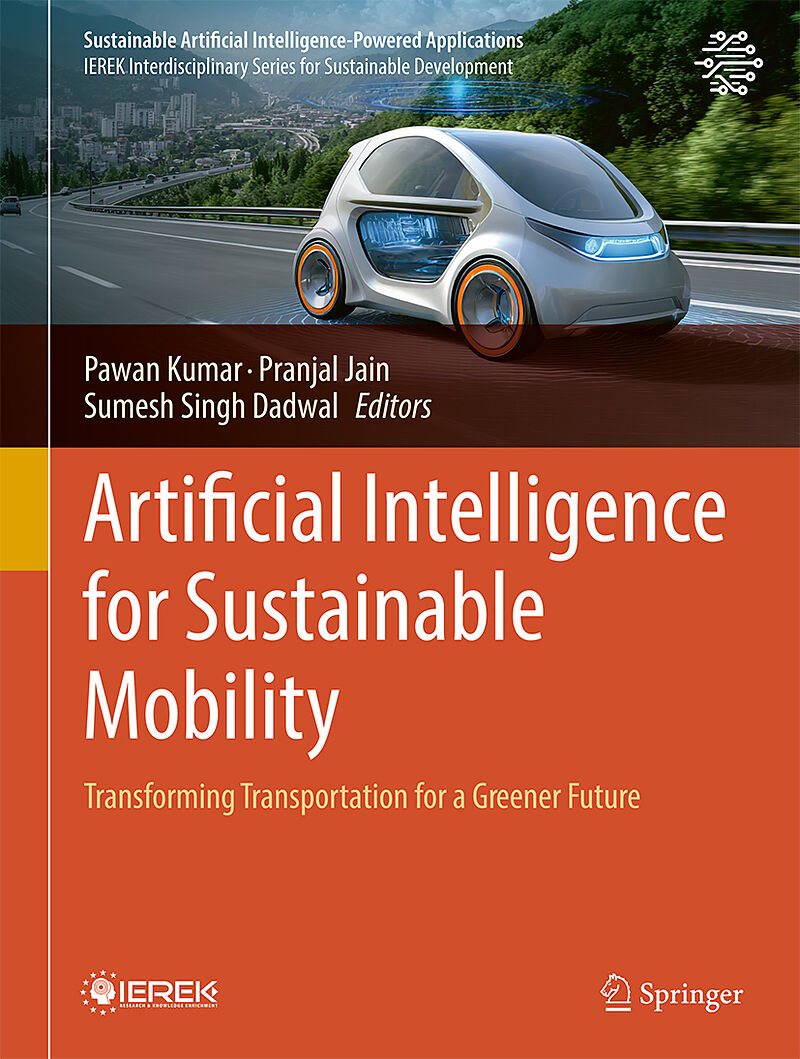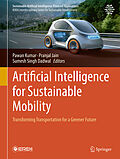

Artificial Intelligence for Sustainable Mobility
Beschreibung
This book performs to bridge the erstwhile chasm between esoteric academic theory in sustainability and pragmatic business practices per consumer research a dichotomy that had long eluded reconciliation until the commencement of this study. While studying sus...Format auswählen
- Fester EinbandCHF 209.15
Wird oft zusammen gekauft
Andere Kunden kauften auch
Beschreibung
This book performs to bridge the erstwhile chasm between esoteric academic theory in sustainability and pragmatic business practices per consumer research a dichotomy that had long eluded reconciliation until the commencement of this study. While studying sustainable mobility, the traditional approaches have often been myopic, focusing singularly on either the theoretical underpinnings of sustainability or the immediate commercial imperatives dictated by market forces. This book, however, seeks to synthesize these seemingly disparate domains into a cohesive narrative that is both intellectually rigorous and practically applicable. The urgency of this synthesis is provided by the growing recognition that the transition to sustainable mobility cannot be effectuated by isolated efforts. It requires a confluence of academic insights, consumer behavior analytics, and technological innovation, all harmonized to foster a transportation ecosystem that is both environmentally sustainable and socially equitable. This book aspires to fill the lacuna left by prior research, offering a blueprint for integrating sustainable principles into the fabric of mobility in a manner that resonates with both policymakers and the populace at large.
Autorentext
Pawan Kumar is working as Professor and Head in the Department of Marketing at Mittal School of Business, Lovely Professional University, Punjab, India. He has 18 years of experience in academics and research. His areas of interest in research include green entrepreneurship, marketing, e-commerce, consumer behavior, social media, technology innovation, etc.He is active in Ph.D. research supervision and has good number of publications in Q1 and Q2 journals to his credit in various research papers published Scopus indexed journals namely: The TQM Journal from Emerald, Visions: Journal of Business Perspectives from Sage, International Journal of Business and Globalization, International Journal of Business Information Systems from Inderscience, and other national/international journals of repute.
Dr. Pranjal Jain is Civil Servant who is a Ph.D., Chartered Accountant, Company Secretary, and B.Com. (Hons). He has obtained specialization in organizational analysis from Stanford Graduate School of Education. He is Special Invitee to the Board of Studies, Institute of Chartered Accountants of India (ICAI). He is Avid Researcher and Scholar who has published more than 20 research papers. He has delivered keynote sessions on the role of emerging technologies in public policy, governance, and management. He has been invited to address mega conferences such as The Academy of Marketing Conference 2024 at Cardiff Business School UK, The AI Innovation Summit 2024 at Hyderabad, IIM Bangalore. His next presentations are scheduled at Journal of Product Innovation Management Conference, US, European Marketing Academy Conference, Portugal, Wharton School and at Columbia Business School, US.
Sumesh Dadwal has 22 years of experience in research, teaching, e-Learning, quality management, and examination assessment in a wide range of business subjects. Currently, Sumesh is working as Sr. Lecturer of strategy and Course Director at LSBU Business School. Before joining LSBU, he worked as Sr. Lecturer, Dissertation Lead, and Program Leader with Northumbria Universities London campus, and also as Associate with London Graduate School and Regent College London (Bucks New University and the University of Bolton, UK). Dr. Dawdal has also worked as Associate Lecturer with Birkbeck College (UoL), University of West London, Plymouth University (GSM, London), Uni of Roehampton UK, and also worked as Sr. Lecturer and Program Leader (MBA) at Glyndwr University London. Sumesh has hands-on experience in managing departments and in supporting the implementation of effective quality management systems. Previously, Dr. Dawdal has also worked with QAA, UK.
Inhalt
- Artificial Intelligence for Sustainable Mobility.- 2. Artificial Intelligence for Sustainable Mobility: Revolutionizing Transportation for a Greener Future.- 3. Optimizing Electric Vehicle Performance: Innovations in Battery Systems, Powertrain, and Charging Solutions.- 4. Next-Generation EV Management: From Intelligent Grid Interaction to AI-Based Diagnostics.- 5. Revolutionizing Electric Vehicle (EV) Management with Artificial Intelligence: Pathways to a Greener Future.- 6. Artificial Intelligence Technology Driven Route Optimization: Revolutionizing Green Mobility for a Sustainable Future.- 7. Smart Mobility: How AI-Driven MaaS is Shaping a Sustainable Future.- 8. Motivation Behind Intention to Use Mobility as a Service (MaaS) from the Indian Consumer Point of View.- 9. AI in Sustainable Crisis Mobility: A Systematic Review on Disaster Response, Transport Resilience and Sustainable Mobility.- 10. AI in Mobility Marketing A Conceptual Perspective.- 11. Empowering the EV Revolution: How AI Educates and Engages the Next Generation of Electric Vehicle Owners in Sustainable Smart Cities.- 12. AI Integrated Mobility as a Service (MaaS) Model: Architectures, Algorithms, and Strategic Frameworks for Intelligent Transportation Solutions.
